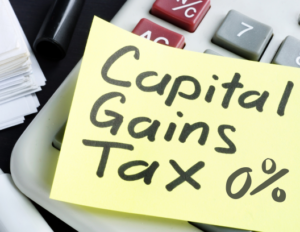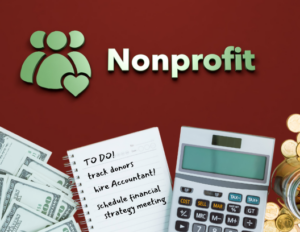Insights and News
CironeFriedberg is a leading CPA firm serving middle market, privately held and family owned businesses and high-net-worth individuals. Our experienced staff provides a full range of tax, audit and accounting, and business advisory services in Connecticut and neighboring Dutchess, Putnam, and Westchester counties in New York.
Employee Volunteers in Our Community
A team of volunteer employees from regional accounting firm CironeFriedberg LLP stepped out of the office for a Day of Action to help the United Way with several projects at Pratt Nature Center in Litchfield County. Employees teamed up to clean up trails, dismantle old wooden tables, dig up cement blocks, mulch, and hang new curtains in the changing stations. […]
Read MoreReducing Capital Gains to Zero
The zero percent tax bracket for capital gains is a significant benefit for many taxpayers, allowing them to potentially pay no taxes on certain capital gains. This article will explain how the zero percent tax bracket applies to capital gains for the 2024 tax filing season, based on the information provided by the IRS. Understanding Capital Gains Capital gains are […]
Read MoreConnecticut’s Sales Tax-Free Week
Connecticut residents can look forward to the 24th annual Sales Tax Free Week in 2024, a popular event that offers a temporary sales tax exemption on certain items. This year, the event will take place from Sunday, August 18, through Saturday, August 24, aligning with the state’s tradition of starting the tax-free week on the third Sunday of August. During […]
Read MoreInnovative Accounting Solutions for Not-for-Profit Organizations
The accountant shortage is impacting not-for-profit organizations, with far-reaching consequences for their financial management and reporting capabilities. In 2020, approximately 75% of the CPA workforce in the U.S. reached retirement age, according to the American Institute of Certified Public Accountants (AICPA). Compounding this issue, the number of students pursuing accounting degrees has been steadily declining, as reported in the AICPA […]
Read MoreTax Tip: Classifying a Hobby vs. a Business
With the rise of the gig economy, many have explored turning their hobbies into profitable ventures. As a result, the lines are blurring between hobbies and small businesses, provoking many people to wonder what impact their decisions may have on their personal income taxes. So, what is the difference between a hobby and a business? The difference between hobbies and […]
Read MoreWhat You Need To Know About SECURE Act 2.0
The SECURE Act — Setting Every Community Up for Retirement Enhancement — was passed in 2019. After that, SECURE Act 2.0 was passed in December 2022 and went into effect January 1, 2023. The SECURE Act 2.0 establishes new rules regarding the timeline that individuals must adhere to with regard to taking required minimum distributions (RMDs) from their retirement accounts. […]
Read MoreTax-Advantaged Qualified Small Business Stock
According to Public Law Number 117-154 (06/23/2022), the U.S. Tax Code is 6,871 pages. When you add the federal tax regulations and official tax guidance, the number of pages increases to approximately 75,000. Some very helpful tax breaks can get lost in the shuffle. One of the lesser-known tax provisions is IRC Section 1202, regarding qualified small business stock (QSBS). […]
Read MoreNew Guidelines for Clean Vehicle Credits and Dealer Transfers
Introduction of Final Regulations The IRS has issued final regulations for new and previously owned clean vehicle credits. These regulations include rules on transferring credits to registered dealers at the point of sale and guidelines for dealers to become eligible for advance payments of transferred credits. New Clean Vehicle Credit Requirements The final regulations specify the critical mineral and battery […]
Read MoreWorking in Retirement Can Affect Your Required Minimum Distributions
You may have many questions about working after retirement. Can you still contribute to retirement accounts? How does working affect your required minimum distributions (RMDs)? Let’s start with contributing to retirement accounts. You should be able to contribute to your employer’s qualified retirement plan regardless of your age. In some instances, you can also contribute to a traditional or Roth […]
Read More












